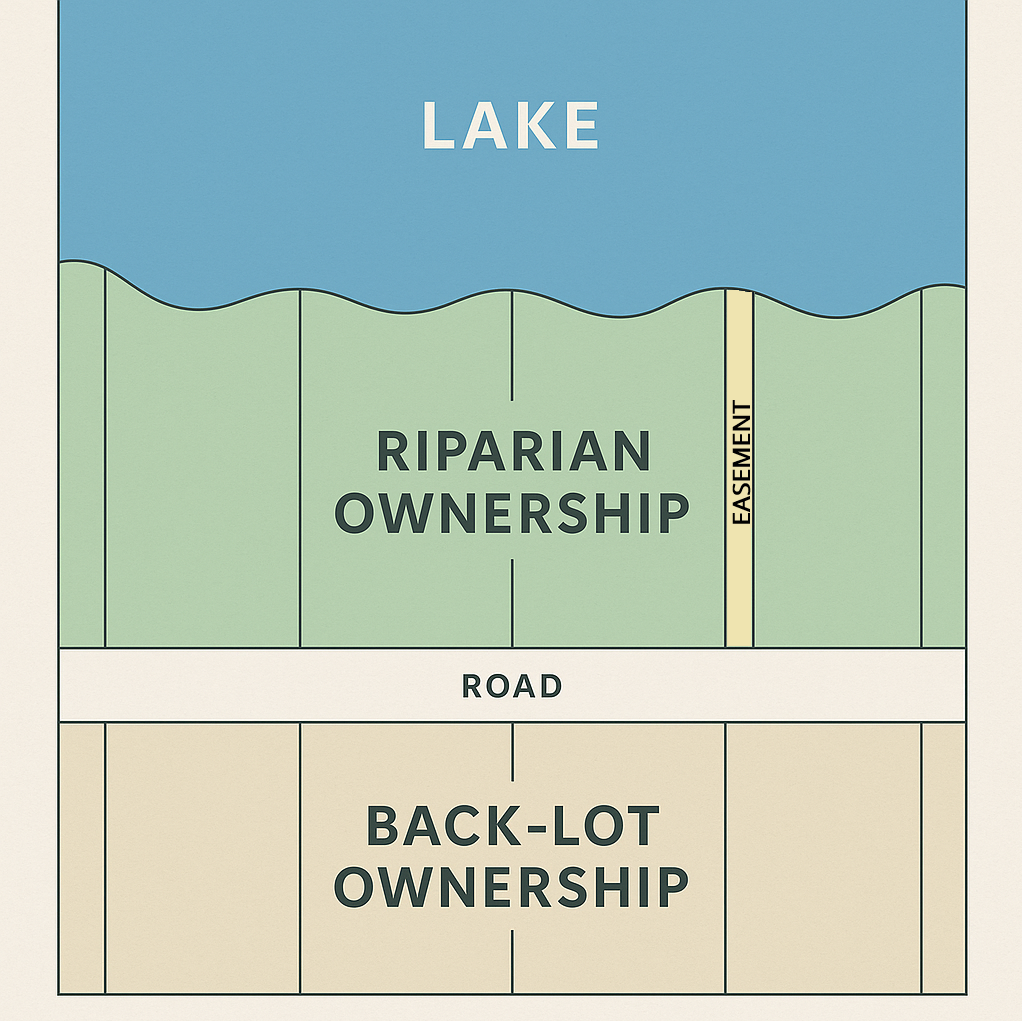Serious but Common Issues On the Lakes
Michigan’s five Great Lakes and more than 10,000 inland lakes make for beautiful landscapes and thriving communities — but also frequent disputes. Most conflicts fall into a handful of predictable and common disagreements. Perhaps the most frequent source of friction on Michigan lakes involves the assertion of rights by backlot owners — those whose property is near the water but does not actually touch it - against front lotters. These owners sometimes believe they enjoy the same rights as riparian landowners, particularly if their subdivision provides a shared access point to the lake.

Michigan law draws an important distinction. While only riparian owners possess riparian rights, backlot owners may have access or secured rights through long term use through an easement or shared lot. In most cases, it does not include the right to build a dock, permanently moor boats, or otherwise exercise the same privileges as riparian owners. In some cases, backlotters have greater rights that the riparian land's owners.
For those wanting access to a lake, this issue matters enormously. Without it, valuable lakefront rights would be diluted and overused or alternatively lost.
Dock disputes are a close second issue, often involving complaints about length, placement, or encroachment into neighboring bottomlands. Backlot access disputes run a close second, where non-riparian owners seek to exercise rights they do not legally hold. Local ordinance conflicts are also frequent, especially when townships attempt to regulate dock use or restrict lake access beyond their authority.
Other disputes involve easements with unclear language, disagreements over shared access sites, or conflicts about shoreline alterations also regularly exist. While some disputes can be resolved informally, many end up in court, where judges apply the reasonableness test and balance competing rights.
Understanding these common patterns is helpful for riparian owners. By recognizing how disputes typically arise — and how Michigan courts have resolved them in the past — property owners can better protect themselves and avoid unnecessary litigation.